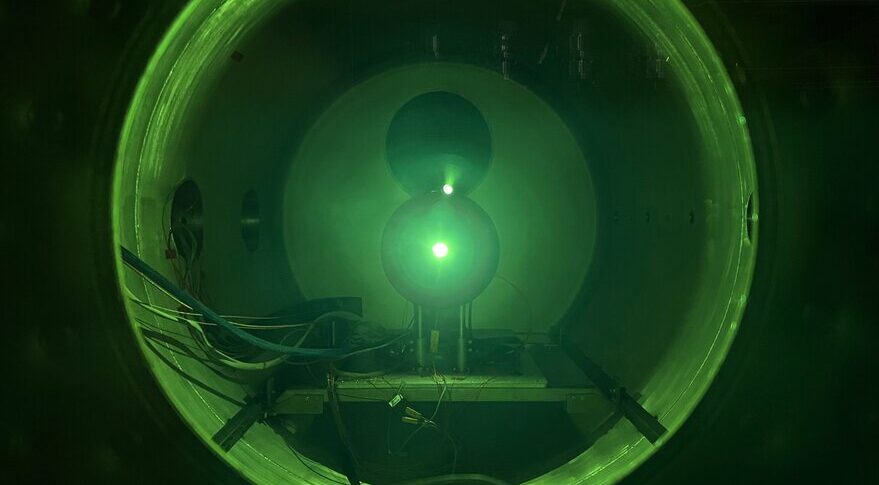Phase Four wins DARPA contract to test novel propellant

SAN FRANCISCO – Phase Four won a Defense Advanced Research Projects Agency contract to demonstrate the California startup’s radio frequency thruster technology with a new propellant.
“We’ve been working with DARPA to explore how we can apply our thruster to use low-cost, low size, weight and power propellants to further the development of mass manufactured satellites and larger constellations,” Jason Wallace, Phase Four vice president of advanced development, told SpaceNews.
Under the one-year DARPA contract announced Feb. 16, Phase Four is developing a new small satellite RF thruster prototype, which the company plans to demonstrate in a vacuum chamber. Phase Four is not revealing the value of the contract or the specific propellant under consideration.
Phase Four proved last year that its xenon-fueled Maxwell Block 1 engine performed as designed in orbit. Maxwell Block 1 is currently providing thrust for six small satellites. Another four are scheduled for launch by the end of the year.
Since the company was founded in 2015, Phase Four has tested thrusters with a number of different propellants including air, water, iodine and Advanced Spacecraft Energetic Non-Toxic, or ASCENT, a green propellant developed by the U.S. Air Force Research Laboratory.
With each new propellant, Phase Four conducts tests to compare its performance to RF thrusters with xenon propellant. Then, the company modifies “both the thruster and the feed system to optimize for performance,” Wallace said. “There are some tweaks for each propellant and certainly some unique characteristics depending on the type of propellant.” (Phase Four thrusters are designed to run on gas, liquid and solid fuels.)
Each propellant offers different benefits for satellite operators. Iodine, for example, sells for about one-tenth the price of xenon.
“For customers who are intent on optimizing electric-propulsion performance, iodine basically provides the same performance as xenon at a much lower price point,” Wallace said.
In addition, Phase Four is investigating propellants that could be harvested in orbit, on planetary bodies or collected from other rocket engines.
“We’re looking at how we can apply the unique technology that Phase Four has to enable different applications and tailor it to the needs of our satellite operators,” Wallace said.
Phase Four plans to begin delivering its second-generation thrusters, Maxwell Block 2 in June.
Block 2 is designed to accommodate a variety of propellant tank sizes. “It’s more modular in nature and more flexible for our commercial customers,” Wallace said.

No comments:
Post a Comment